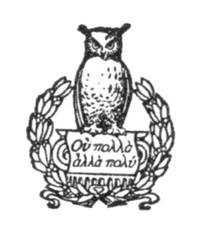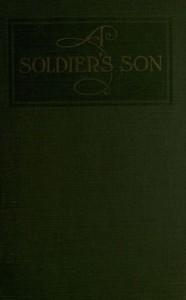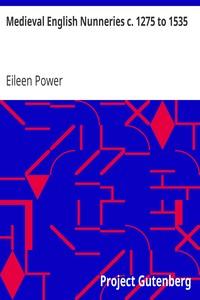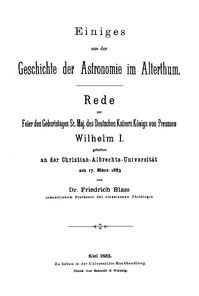|
|
Read this ebook for free! No credit card needed, absolutely nothing to pay.Words: 184429 in 37 pages
This is an ebook sharing website. You can read the uploaded ebooks for free here. No credit cards needed, nothing to pay. If you want to own a digital copy of the ebook, or want to read offline with your favorite ebook-reader, then you can choose to buy and download the ebook. re, that differences of character show themselves much more strongly. Hunting and fishing are so exciting, and the reward is so near, that even a man who is not very industrious will do his part. But in agriculture only the hard and patient worker gets a reward and he does not like to share it with the lazy, or even with the weaker. Commerce, bargaining, likewise puts a great premium on individual shrewdness. And for a long time commerce was conducted on a relatively individual basis. Caravans of traders journeyed together for mutual protection but there was not any such organization as later obtained, and each individual could display his own cunning or ability. Moreover commerce leads to the comparison of custom, to interchange of ideas as well as goods. All this tends to break down the sanctity of customs peculiar to a given group. The trader as well as the guest may overstep the barriers set up by kin. The early Greek colonists, among whom a great individualistic movement began, were the traders of their day. The parts of Europe where most survives of primitive group life are those little touched by modern commerce. But we get a broader view of economic influences if we consider the methods of organizing industry which have successively prevailed. In early society, and likewise in the earlier period of modern civilization, the family was a great economic unit. Many or most of the industries could be advantageously carried on in the household. As in the cases cited above the stronger or adventurous member would be constantly trying to strike out for himself. This process of constant readjustment is, however, far less thoroughgoing in its effects on mores than the three great methods of securing a broader organization of industry. In primitive society large enterprises had to be carried on by the co-operation of the group. Forced labor as used by the Oriental civilizations substituted a method by which greater works like the pyramids or temples could be built, but it brought with it the overthrow of much of the old group sympathies and mutual aid. In Greece and Rome slavery did the drudgery and left the citizens free to cultivate art, letters, and government. It gave opportunity and scope for the few. Men of power and genius arose, and at the same time all the negative forces of individualism asserted themselves. In modern times capitalism is the method for organizing industry and trade. It proves more effective than forced labor or slavery in securing combination of forces and in exploiting natural resources. It likewise gives extraordinary opportunities for the rise of men of organizing genius. The careers of "captains of industry" are more fascinating than those of old-time conquerors because they involve more complex situations, and can utilize the discoveries and labors of more men. But modern capitalism has been as destructive to the morality of the Middle Ages, or even of a hundred years ago, as was forced labor or slavery to the group life and mores which they destroyed. And science joins with the various industrial and fine arts to create a new set of interests for the individual. Any good piece of workmanship, any work of art however simple, is twice blest. It blesses him that makes and him that uses or enjoys. The division of labor, begun in group life, is carried further. Craftsmen and artists develop increasing individuality as they construct temples or palaces, fashion statues or pottery, or sing of gods and heroes. Their minds grow with what they do. Side by side with the aspect of art which makes it a bond of society is the aspect which so frequently makes the skilled workman the critic, and the artist a law to himself. In the next place note the effect on those who can use and enjoy the products of the arts. A new world of satisfaction and happiness is opened which each person can enter for himself. In cruder conditions there was not much out of which to build up happiness. Food, labor, rest, the thrill of hunt or contest, the passion of sex, the pride in children--these made up the interests of primitive life. Further means of enjoyment were found chiefly in society of the kin, or in the men's house. But as the arts advanced the individual could have made for him a fine house and elaborate clothing. Metal, wood, and clay minister to increasing wants. A permanent and stately tomb makes the future more definite. The ability to hand down wealth in durable form places a premium on its acquirement. Ambition has more stuff to work with. A more definite, assertive self is gradually built up. "Good" comes to have added meaning with every new want that awakes. The individual is not satisfied any longer to take the group's valuation. He wants to get his own good in his own way. And it will often seem to him that he can get his own good most easily and surely either by keeping out of the common life or by using his fellow men to his own advantage. Men of culture have frequently shown their selfishness in the first way; men of wealth in the second. An aristocracy of culture, or birth, or wealth may come to regard the whole process of civilization as properly ministering to the wants of the select few. Nearly every people which has developed the arts and sciences has developed also an aristocracy. In the ancient world slavery was a part of the process. In modern times other forms of exploitation may serve the purpose better. Individualism, released from the ties which bound up the good of one with the good of all, tends to become exclusive and selfish; civilization with all its opportunities for increasing happiness and increasing life has its moral risks and indirectly, at least, its moral evils. These evils may appear as the gratification of sense and appetite and thus may be opposed to the higher life of the spirit, which needs no outer objects or luxuries. Or they may appear as rooted in selfishness, in the desire for gratifying the exclusive self of material interests or ambition, as over against sympathy, justice, and kindness, which mark a broadly human and social life. In both cases serious men have sought to overcome by some form of "self-denial" the evils that attend on civilization, even if they are not due to it. ? 3. THE PSYCHOLOGICAL AGENCIES The change from the maternal clan to the paternal family or household was a re?nforcement to the individual control of property. The father could hand down his cattle or his house to his son. The joint family of India is indeed a type of a paternal system. Nevertheless the tendency is much stronger to insist on individual property where the father's goods pass to his son than where they go to his sister's children. The chiefs or rulers were likely to gain the right of private property first. Among certain families of the South Slavs to-day, the head has his individual eating utensils, the rest share. Among many people the chiefs have cattle which they can dispose of as they will; the rest have simply their share of the kin's goods. The old Brehon laws of Ireland show this stage. But however it comes about, the very meaning of property is, in the first place, exclusion of others from some thing which I have. It is therefore in so far necessarily opposed to group unity, opposed to any such simple solidarity of life as we find in group morality. As the American Indian accepts land in severalty, the old group life, the tribal restraints and supports, the group custom and moral unity that went with it, are gone. He must find a new basis or go to pieces. Or the contest may be for intellectual liberty--for free thought and free speech. It is sometimes considered that such liberty meets its strongest opponent in the religious or ecclesiastical organization. There is no doubt a conservative tendency in religion. As we have pointed out, religion is the great conservator of group values and group standards. Its ritual is most elaborate, its taboos most sacred. Intellectual criticism tends to undermine what is outgrown or merely habitual here as elsewhere. Rationalism or free thought has set itself in frequent opposition likewise to what has been claimed to be "above reason." Nevertheless it would be absurd to attribute all the individualism to science and all the conservatism to religion. Scientific dogmas and "idols" are hard to displace. Schools are about as conservative as churches. And on the other hand the struggle for religious liberty has usually been carried on not by the irreligious but by the religious. The prophet Amos found himself opposed by the religious organization of his day when he urged social righteousness, and the history of the noble army of martyrs is a record of appeal to individual conscience, or to an immediate personal relation to God, as over against the formal, the traditional, the organized religious customs and doctrines of their age. The struggle for religious toleration and religious liberty takes its place side by side with the struggles for intellectual and political liberty in the chapters of individualism. The moral value of these three forces of individualism was finely stated by Kant: We have spoken of the "forces" which tend to break down the old unity of the group and bring about new organization. But of course these forces are not impersonal. Sometimes they seem to act like the ocean tide, pushing silently in, and only now and then sending a wave a little higher than its fellows. Frequently, however, some great personality stands out pre?minent, either as critic of the old or builder of the new. The prophets were stoned because they condemned the present; the next generation was ready to build their sepulchers. Socrates is the classic example of the great man who perishes in seeking to find a rational basis to replace that of custom. Indeed, this conflict--on the one hand, the rigid system of tradition and corporate union hallowed by all the sanctions of religion and public opinion; upon the other, the individual making appeal to reason, or to his conscience, or to a "higher law"--is the tragedy of history. ? 4. POSITIVE RECONSTRUCTION Free books android app tbrJar TBR JAR Read Free books online gutenberg More posts by @FreeBooks
: A Soldier's Son by Butler Maude Mary - Christian fiction; Christian Science Fiction@FreeBooksWed 07 Jun, 2023

: Medieval English Nunneries c. 1275 to 1535 by Power Eileen - Convents England; Monastic and religious life of women History@FreeBooksWed 07 Jun, 2023

: Mortomley's Estate: A Novel. Vol. 2 (of 3) by Riddell J H Mrs - England Fiction; Bankruptcy Fiction@FreeBooksWed 07 Jun, 2023
|
Terms of Use Stock Market News! © gutenberg.org.in2025 All Rights reserved.






